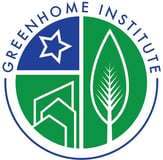Evaluating Geothermal Heat Pumps - Carbon & The Grid
GreenHome Institute Weekly Free CE Webinar Presents:
Evaluating Geothermal Heat Pumps - Carbon & The Grid - Free CE Webinar
Wednesday, July 17 @ 12 PM EDT
Details to view the event are private and will be sent along with your ticket purchase.

